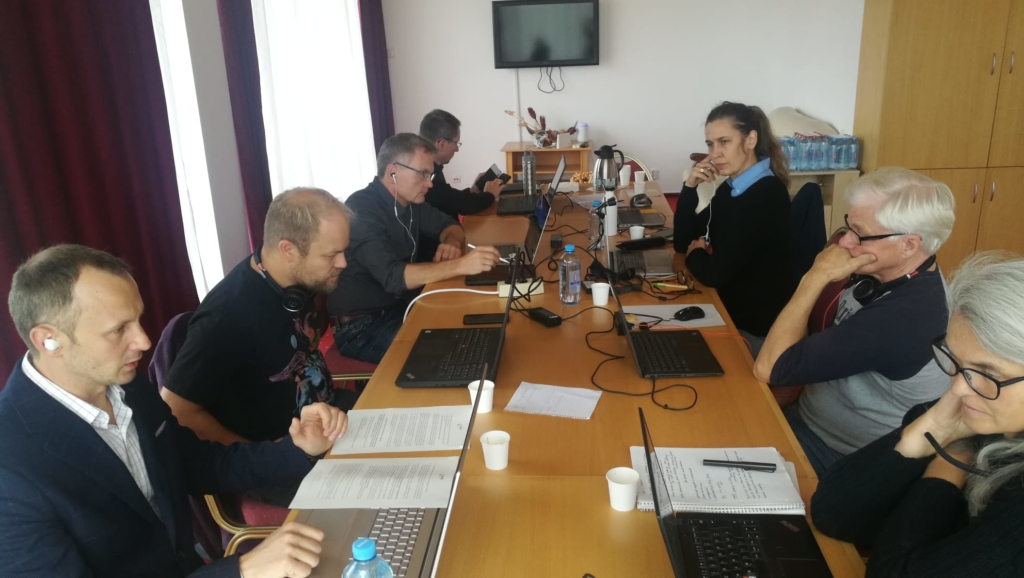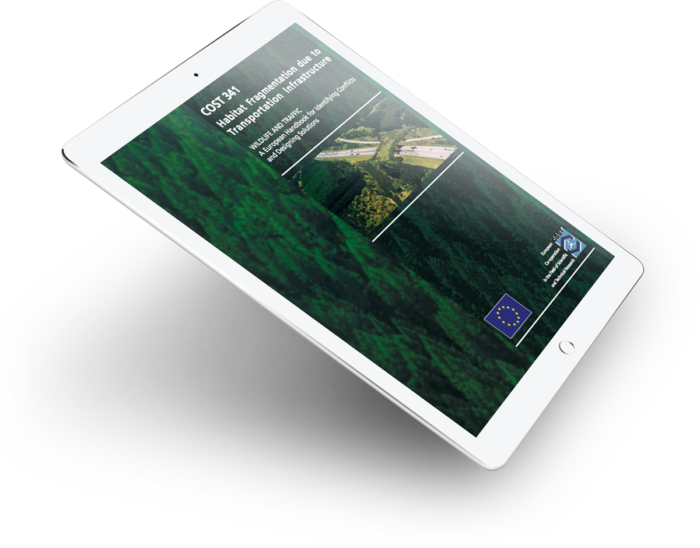On the occasion of the IENE 2022 international conference, which will take place from September 19 to 23 in Cluj-Napoca, IENE held a press conference on the highlights of the IENE international conference. 300 international experts will exchange on the theme Connecting people, connecting landscapes.

Press conference held in Cluj Napoca on Monday September 19
Highlights of this international conference include:
– Exchanging knowledge and innovative technologies to harmonise biodiversity and infrastructure to preserve ecosystems and promote sustainable infrastructure. Experts from all over the world will share research results and experience to achieve an effective implementation of best practices in all phases of infrastructure development.
– The European situation regarding transport and biodiversity, future trends and recommendations for mainstreaming biodiversity into European infrastructure. These outcomes are a direct result of the Horizon 2020 BISON project, funded by the European Commission.
– Best practices to implement mitigation measures and improve the functionality of ecological corridors. This year, a particular focus will be put on the SaveGREEN project in the Danube-Carpathian region, where huge infrastructure developments are planned. SaveGREEN aims to demonstrate that it is possible to design appropriate mitigation measures and maintain or improve the functionality of ecological corridors.
– As an end result, a common declaration will be issued by the participants and 400 experts of the IENE network on the urgent need for cooperation to mainstream biodiversity into the transport sector through integrated planning. It will call on stakeholders to exchange the latest knowledge and implement it locally.
| While transport infrastructure has a direct impact on biodiversity, these same infrastructures are also affected by the environmental/climate crisis. To face these challenges, Europe must adapt its existing infrastructures to new climatic conditions (floods, droughts, wildfire, etc.) and implement innovative and sustainable solutions to reduce the impact of invasive species and combat the decline of native species and the fragmentation of ecosystems. At the same time, the sharp increase in the development of 3 new transport infrastructures, particularly in Eastern Europe, must support economic development while paying attention to biodiversity in general and, particularly, to local, often endemic, biodiversity. These complex issues cannot be addressed without research and innovation, both in the field of biodiversity and infrastructure. The Infrastructure and Ecology Network Europe (IENE) was set up in 1996 to address this need. Its mission is to promote well-established cooperation between practitioners, the exchange of knowledge, experience and best practice in safe and sustainable pan-European transport infrastructure. This independent network has more than 400 members consisting of researchers, engineers, decision makers, and infrastructure operators. IENE functions as an international and interdisciplinary forum. It supports cross-border cooperation in research, mitigation, planning, design, construction and maintenance in the field of biodiversity and transport infrastructure. Every two years, the IENE network organises an international conference to present state-of-the-art research, identify pressing issues and problems, discuss effective solutions, and define future activities in the field of biodiversity research and transport infrastructure. The theme of the IENE 2022 conference is “Connecting people, connecting landscapes”. This conference aims to draw up an assessment, in order to answer the following questions: – What is the state of play after more than 25 years of transport ecology and what are the next strategic actions needed? – In practice, what works and what doesn’t work to harmonise transport and biodiversity? – Like any complex issue, landscape connectivity requires multi-sectoral cooperation. How can we break down the silos? |
